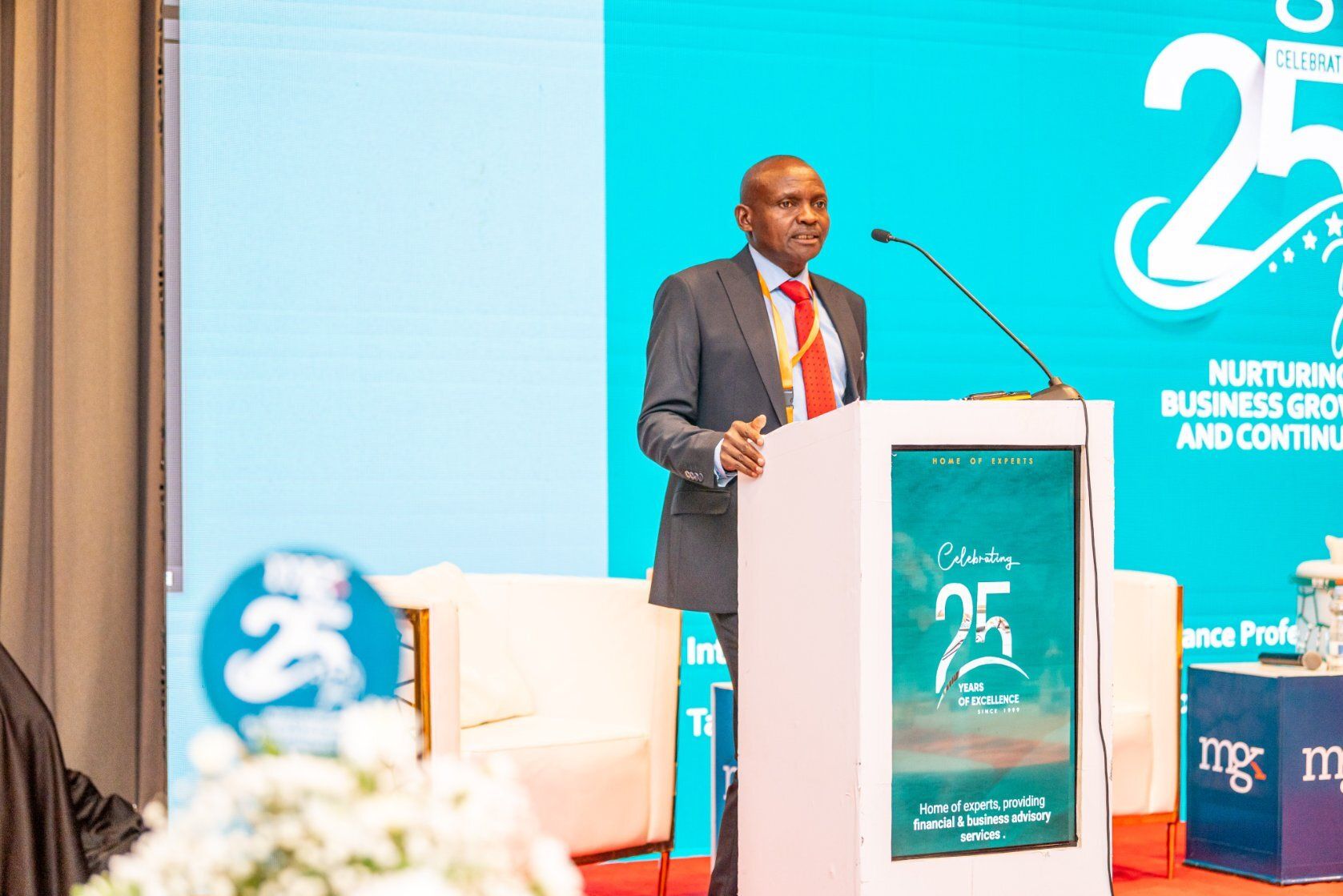- The 254 Report
- Posts
- 25 Years of MGK Consulting: Michael G. Kimani’s Unfiltered Truth on Leadership, Business Survival and the Future of Professional Services in Kenya
25 Years of MGK Consulting: Michael G. Kimani’s Unfiltered Truth on Leadership, Business Survival and the Future of Professional Services in Kenya

Photo courtesy: @MGK_Consulting on X
On the occasion of MGK Consulting’s 25th anniversary, the firm’s Chairman and Senior Partner, Michael G. Kimani, took the stage at the Hyatt Regency Nairobi Westlands not to reminisce, but to reflect critically and honestly on the state of business and leadership in Kenya. His address was clear, unscripted, and deeply personal. It was a rare moment of candour from a man who has seen the evolution of corporate Kenya over three decades. His remarks did not just mark a milestone. They served as a manifesto for the future of resilient, values-driven enterprises.
Michael G. Kimani opened his keynote with an admission that 2024 had been the most difficult year he had ever experienced in business. He referenced market instability, inflated costs, tax confusion and widespread burnout in the professional services sector. Yet he warned leaders in the room that despair was not an option.
“We are the pilots. We do not have the luxury of panicking midair.”
He called on firm partners and managers across the country to resist the urge to retreat or complain. He described leadership not as privilege but as sacrifice, arguing that professionals must hold their positions even when conditions are unfavorable.
“This is a time like no other. I’ve been in business for over three decades, and 2024 ranks as one of the most difficult years on record. But we must lead not with fear but with hope.”
He said that clients need not only auditors or tax consultants but people they can trust to help them make sound decisions in uncertain times.
“Our clients don’t just want services. They want to be able to sleep at night knowing someone is watching their back.”
He challenged the dominant narrative that blames staff or external forces when businesses perform poorly.
“The problem is not your employees. It is how you lead.”
Leadership, according to Kimani, is about empathy, accountability and the ability to listen deeply.
One of the most striking parts of his address was his appeal to senior executives to move away from command-style leadership and embrace authenticity.
“This generation doesn’t care about your title. They care about whether you’re there, whether you’re real.”
He stated that younger professionals no longer respond to status or intimidation. Instead, they follow those who are present, humble and able to engage meaningfully.
“We cannot lead from pedestals anymore.”
Kimani acknowledged that mental health had become a significant workplace issue, one that past generations ignored or dismissed. He urged leaders to give their teams space to express themselves and feel seen.
“Let your people breathe. Let them speak their truth without fear. That is what leadership demands today.”
On financial discipline, Kimani warned against the temptation to expand in the midst of crisis.
He pointed out that access to debt had become more expensive and unreliable and advised firms to operate with lean budgets and ruthless efficiency.
“Debt is expensive. Cash is king.”
He emphasized that success was not about how flashy an office looked or how large a team was, but about whether an enterprise could deliver results consistently under pressure.
Innovation also featured prominently in Kimani’s address. He insisted that the only real advantage any business could sustain today was innovation.
“Innovation is the only competitive advantage that isn’t easily copied.”
He encouraged firms to adopt a mindset of constant experimentation, to fail fast and move forward.
“You must fail fast and forward. Don’t wait for perfection. Try, learn, adapt.”
Addressing the difficult subject of layoffs and downsizing, Kimani acknowledged that many firms were struggling with high wage bills. However, he challenged the room to resist the urge to cut staff as a first response.
“You cannot shrink yourself to greatness. Cost-cutting is for survival, not growth.”
Instead, he advocated for reallocation of talent, creative restructuring and skills development. He reminded firms that some of the best talent in the market becomes available during downturns and that investing in the right people now could pay off later.
Kimani also touched on the often-unspoken issue of managerial burnout and the psychological cost of leadership.
“Some of you are tired, I know. You haven’t taken leave in years. But you must find space to rest and reflect. Because leadership that is exhausted cannot inspire.”
As he brought his remarks to a close, Kimani offered a vision of purpose-driven leadership anchored not in profit margins but in impact.
“We must remind ourselves why we exist. We are not just here to prepare financial statements or file tax returns. We are here to build a better society. We are here to uplift, to support, to bring clarity where there is confusion. That is the real work.”
He concluded by thanking the MGK team, clients and partners for their commitment over the past quarter century. Yet even in celebration, his message was one of responsibility.
“You do not get to 25 years by accident. You get there by making the hard decisions and staying grounded in your values. The next 25 years will require even more from us. But I believe we are ready.”
Reply